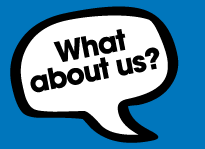Findings and recommendations
School and student councils and other processes for consultation and developing school or college democracy frequently do not include young people with learning difficulties, disabilities and/or special educational needs.
Most of the schools and colleges we visited had a school council or a student council. But at the start of the project, only one council really included young people with learning difficulties. Most young people did not know much about these councils when we asked them. They did not feel they were involved in the councils in any way, even when they had heard about them. They wanted to be part of this like other students in school or college.
In some schools and colleges, the adults felt that it was too difficult to involve young people with learning difficulties in council meetings in a meaningful way. Adults thought that they would find it hard to make decisions or to come up with ideas for things that needed to change. They felt that the meetings would be difficult to follow and that the minutes or records from these meetings would be hard to understand.
As a research team, we made a series of suggestions about how schools and colleges could make councils work better for young people with learning difficulties. We had developed these ideas by working with our Reference Group of young people with learning difficulties. Members of this group helped us to make easy-to-follow agendas and minutes from our meetings and to develop ways of enabling young people to run the meetings for themselves.
During the project, we also saw other exciting ways of making school or student councils more inclusive. These approaches showed that young people with learning difficulties, disabilities and/or special educational needs can be very effectively involved in existing consultative and democratic processes in their schools and colleges (including student councils). This can work either through direct representation or through consultation with peers who are council members. We found that the involvement of young people with learning difficulties, disabilities and/or special educational needs can enhance the powerful contribution that student councils can make to school and college development. During the project, we saw significant and positive change being driven by young people with learning difficulties, disabilities and/or special educational needs through their engagement with student councils.
We suggest:
- Schools and colleges should review the role of student councils and the ways in which they work
- In particular, schools and colleges should ensure that young people with learning difficulties, disabilities and/or special educational needs have meaningful access to student council processes and to other democratic and decision-making structures in school or college so that they can make a full contribution.



